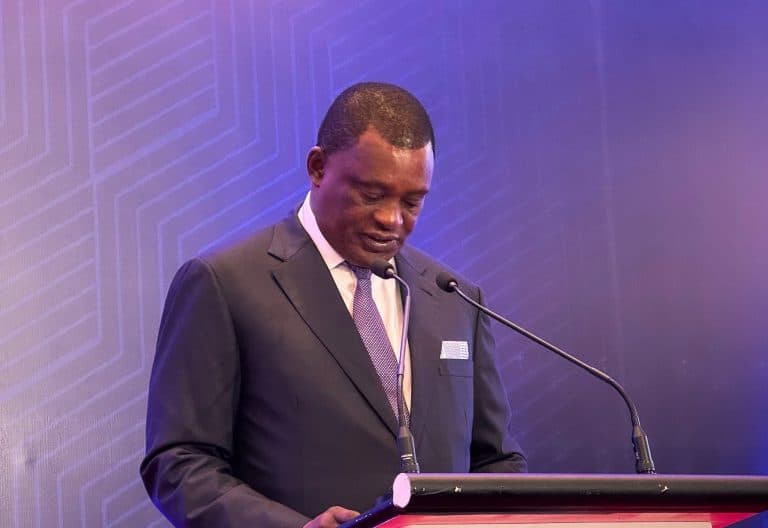We're loading the full news article for you. This includes the article content, images, author information, and related articles.
Former Attorney General Justin Muturi alleges he rejected a proposal from President William Ruto’s inner circle to establish a formal Office of the First Lady, a move he deemed legally baseless. The claim ignites fresh debate on the constitutional boundaries of the executive in Kenya.

Former Attorney General Justin Muturi has accused President William Ruto’s administration of pressuring him to approve the creation of a formal Office of the First Lady, a move he claims he rejected on constitutional grounds. The allegation, made during a televised interview on Sunday, November 9, 2025, adds a new layer to the increasingly public fallout between the President and his former chief legal advisor.
Speaking to a local media outlet, Muturi stated that while serving as Attorney General, he was approached by aides of the President with a proposal to formalize the First Lady's office. “William Ruto na watu wake walijaribu kuniletea deal... ati to establish the office of the first lady,” Muturi said, asserting he questioned the legal basis for such an institution. He claims he dismissed the proposal, telling the aides to “return to the sender,” as there was no constitutional or legal framework to support it.
As of Monday, November 10, 2025, State House has not issued a formal response to these specific allegations. This claim is the latest in a series of public criticisms Muturi has leveled against the administration since his dismissal from the Cabinet in March 2025, which he contends was due to his stance on extrajudicial killings.
The Constitution of Kenya does not establish or provide for an Office of the First Lady, a fact that has been a recurring point of legal and political debate. While the spouses of Kenyan presidents have historically played public roles, the creation of a formal, state-funded office has been contentious. Historically, First Ladies performed social and diplomatic duties, but in recent decades the role has become more institutionalized with a dedicated budget and staff.
Critics, including Kakamega Senator Boni Khalwale, have argued that funding such an office is unconstitutional and a waste of public resources, describing it as a “private family issue.” The powers of the Attorney General, as outlined in Article 156 of the Constitution, include being the principal legal adviser to the government and upholding the rule of law and public interest. In this capacity, the Attorney General would be responsible for advising on the legality of establishing new government offices.
The controversy surrounding the First Lady's office is not new to the Ruto administration. In July 2024, amid widespread public outcry over the Finance Bill 2024, President Ruto announced that the offices of the First Lady and the Second Lady would not receive funding in the new fiscal year as part of broader austerity measures. This decision followed reports that the budget for First Lady Rachel Ruto's office was set to increase by 17.3 percent to KSh 696 million. Subsequently, the Treasury officially scrapped the KSh 1.25 billion combined budget for the offices of the First Lady and the Second Lady.
First Lady Rachel Ruto has been publicly active, focusing on initiatives related to women's economic empowerment, faith diplomacy, and environmental action through her 'Mama Doing Good' organization. Her activities, while not constitutionally mandated, follow a pattern set by predecessors like Margaret Kenyatta, whose 'Beyond Zero Campaign' also operated with significant resources.
Muturi's latest claim highlights the deep-seated disagreements that have characterized his relationship with President Ruto. The former Speaker of the National Assembly, who served as Attorney General and later as Public Service Cabinet Secretary, has become one of the administration's most vocal internal critics. President Ruto had previously described Muturi as “fairly incompetent” during his tenure as Attorney General, a charge Muturi publicly refuted. Muturi has also accused the President of being “irredeemably corrupt” and unfit for office, citing an instance where he allegedly resisted pressure to sign a KSh 129 billion deal with Russian oligarchs without due process. The administration has not officially responded to these corruption allegations, though some officials have dismissed Muturi's criticisms as politically motivated. This ongoing war of words between a president and his former top legal advisor raises significant questions about governance, transparency, and the rule of law in Kenya, with potential implications for the political landscape leading up to the 2027 General Election.
Keep the conversation in one place—threads here stay linked to the story and in the forums.
Sign in to start a discussion
Start a conversation about this story and keep it linked here.
Other hot threads
E-sports and Gaming Community in Kenya
Active 9 months ago
The Role of Technology in Modern Agriculture (AgriTech)
Active 9 months ago
Popular Recreational Activities Across Counties
Active 9 months ago
Investing in Youth Sports Development Programs
Active 9 months ago
Key figures and persons of interest featured in this article